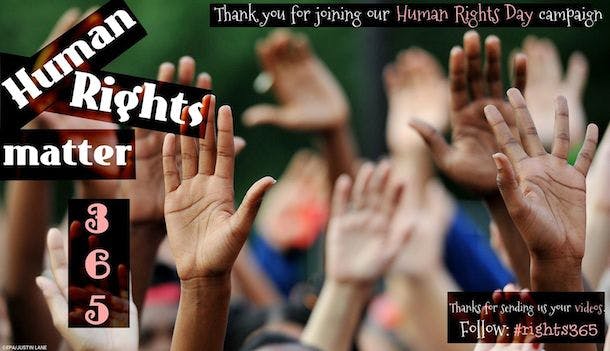
By Guest Author: Sofia Gruskin, Director, Program on Global Health & Human Rights at the University of Southern California Institute for Global Health
Today is Human Rights Day. In reflecting on the theme for this year — Human Rights 365, encompassing the idea that every day is and should be Human Rights Day — we are reminded that even with the tremendous progress we have made, we still have a lot of work ahead of us to create a world where each one of us, everywhere, at all times, is entitled to our full range of human rights. Focusing on supporting the rights and health needs for the most vulnerable or disadvantaged, including adolescent girls, is critical to achieving equitable and sustainable development gains. In no area is this more true than in relation to their sexual and reproductive health and rights.
Sexual and reproductive health and rights often generate strong opinions steeped unfortunately not in evidence but in social values, ideology, religion and morality. Why does this matter? Human rights are critical to the sexual and reproductive health of women and girls, and there is a long history of uneven progress especially when it comes to the ability of girls and women to control their fertility. More than 225 million girls and women around the word have an unmet for modern contraception. In developing regions, more than half of reproductive-age women want to avoid a pregnancy. And levels of unmet need for modern contraception are highest among the poorest girls and women. In sub-Saharan Africa, for example, 73% of the women in the lowest wealth quintile want to avoid pregnancy and have an unmet need in comparison to 46% of women in the wealthiest quintile.
On Human Rights Day, our attention must be on how we ensure that health services do not discriminate in access to contraception and other sexual and reproductive health services for all people, including particularly vulnerable groups, such as young people, people living with HIV, ethnic minorities, sex workers, and transgender populations. Clear articulation of human rights norms and standards can ensure improvements in the quality of services provided, that health facilities and services are non-discriminatory and of good quality from the outset, and that accountability mechanisms are in place, which give proper attention to marginalized and discriminated-against populations.
As final negotiations wrap for the post-2015 development framework, it’s more important than ever to ensure the sexual and reproductive health and rights of girls and women are not forgotten. This Human Rights Day, let’s remember that sexual and reproductive health and rights are fundamental to the lives of women, families, communities, and our world 365 days per year.



 View All Blog Posts
View All Blog Posts